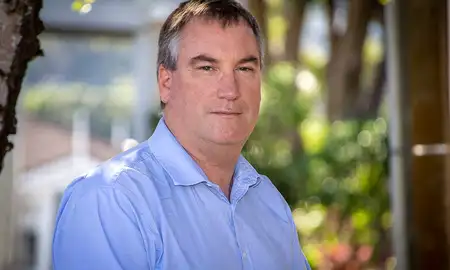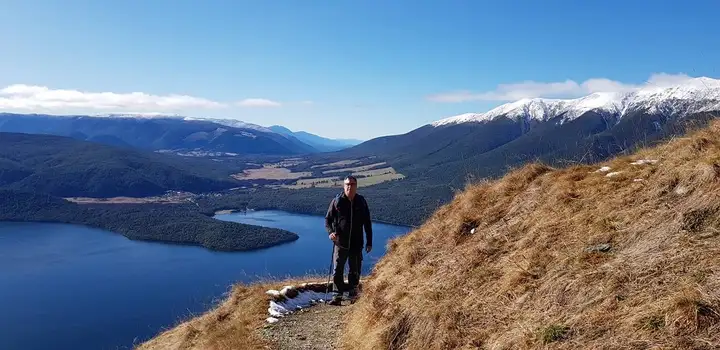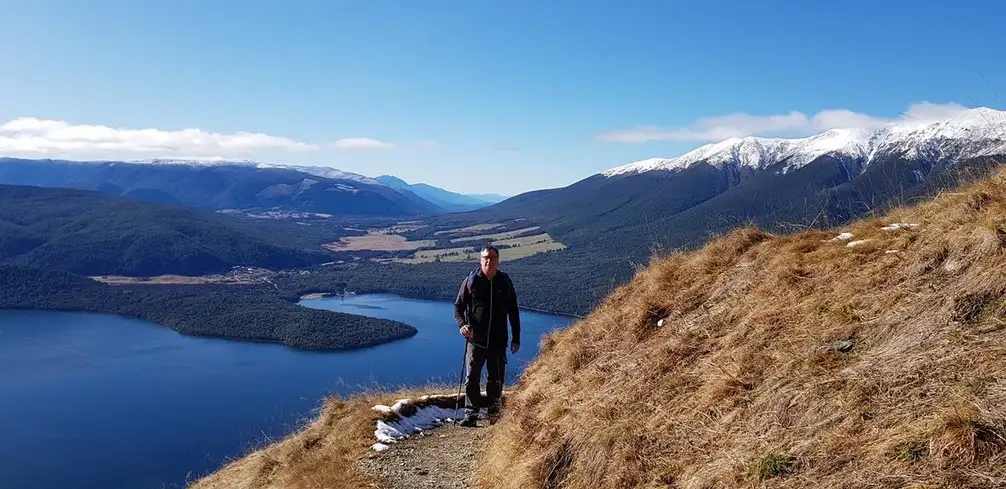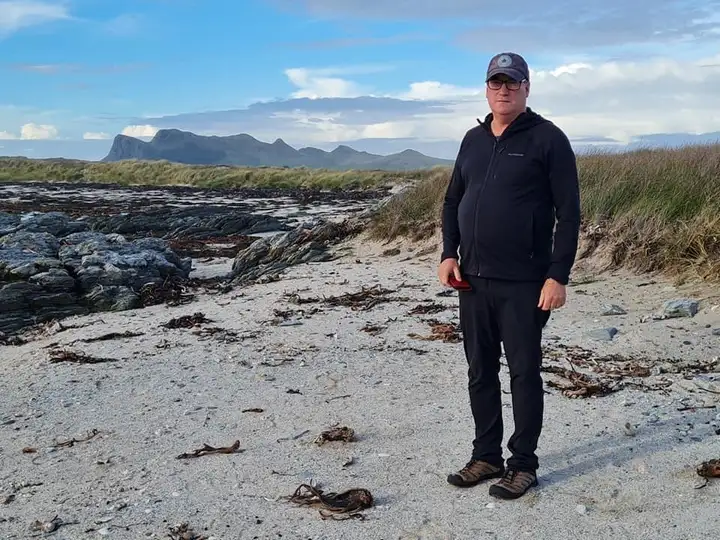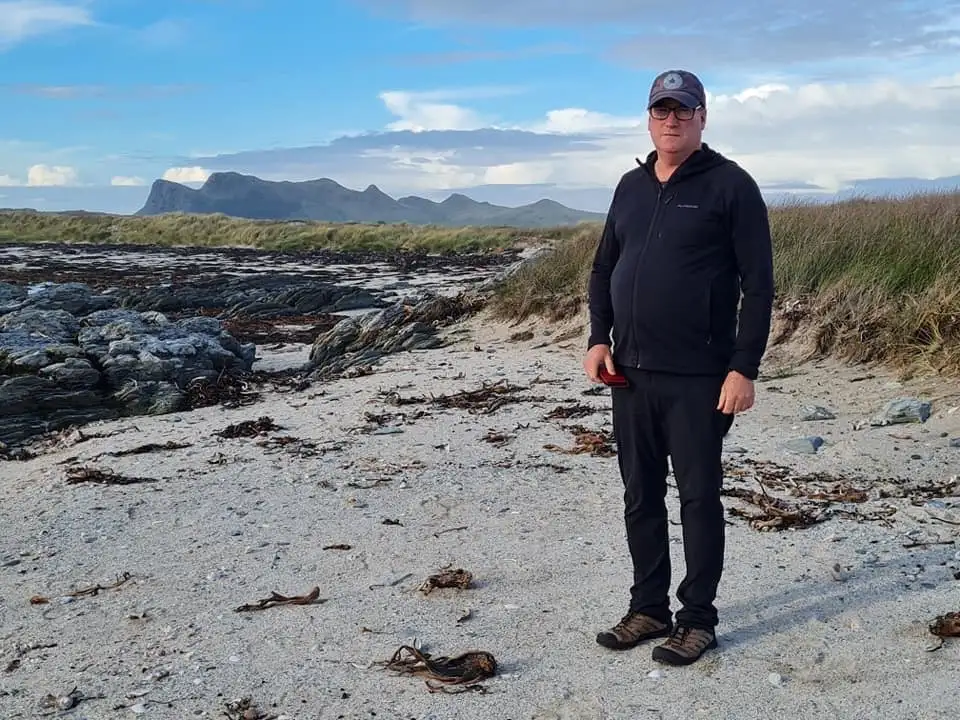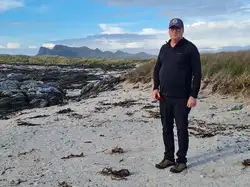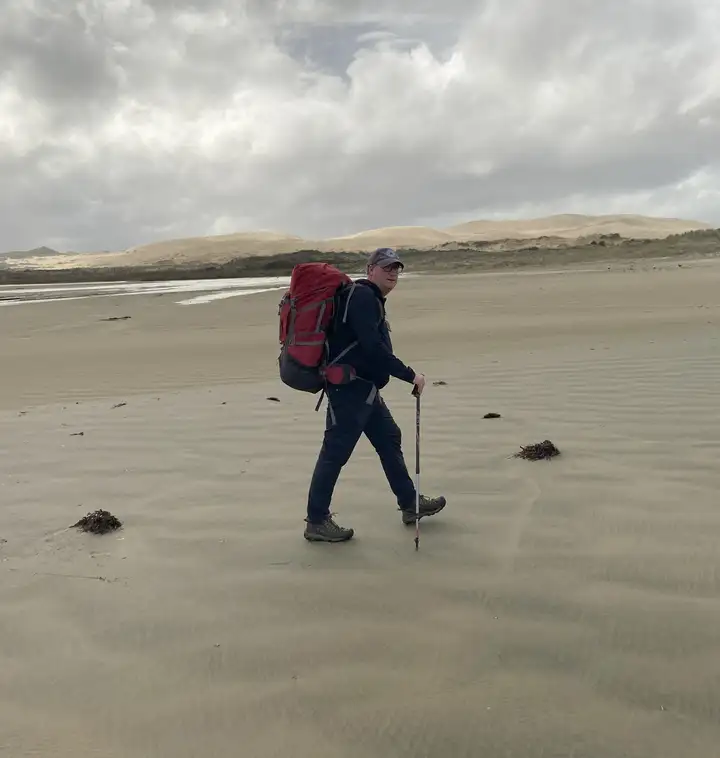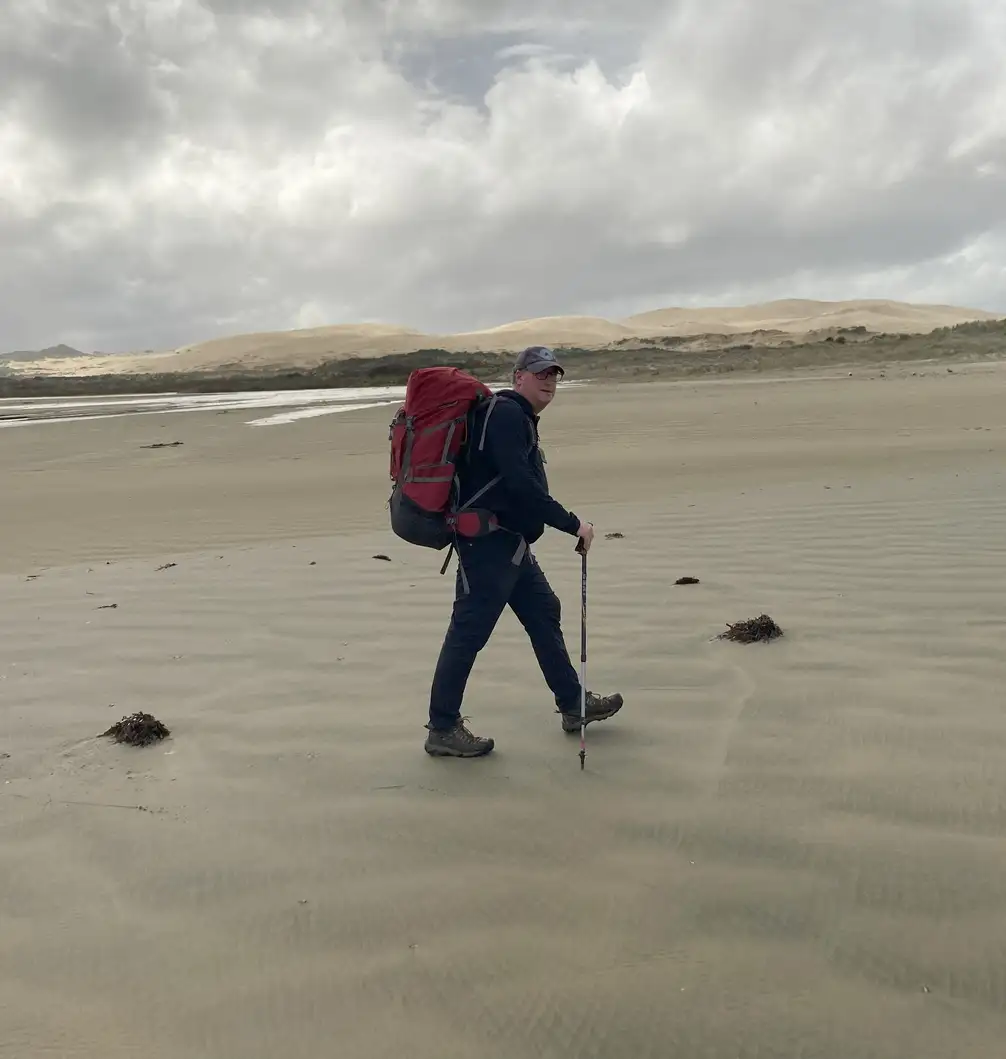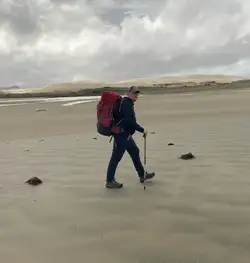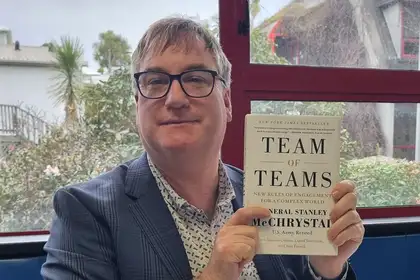
Distinguished Professor David Johnston.
Distinguished Professor David Johnston was the Director of the Joint Centre for Disaster Research (JCDR) within the School of Psychology in Massey University’s College of Humanities and Social Sciences. He was awarded the title of Distinguished Professor in July 2024.
Professor Johnston is survived by his partner Associate Professor Carol Stewart from the School of Health Sciences, son Joshua and siblings Chris and Sarah.
As well as being the Director of the JCDR which he established in 2006, Professor Johnston was also the Deputy Director of the New Zealand Centre for Earthquake Resilience, with the multi-institutional QuakeCoRE research programme. He earned his Bachelor of Science and Master of Science at the University of Canterbury before completing a PhD in earth science at Massey. He then spent time working at the Institute of Geological and Nuclear Sciences where he worked for 25 years (1993-2018), the University of Canterbury and was an Honorary Professor at University College of London.
He accumulated more than 30 years of research experience, and his work on multiagency community engagement during disaster recovery informed the Canterbury Earthquake Recovery Authority wellbeing programme and recovery programmes for COVID-19 and the Auckland floods in early 2023.
Professor Johnston's research focused on human responses to volcano, tsunami, earthquake and weather warnings, crisis decision-making and the role of public education and participation in building community resilience and recovery.
In 2016, he received the Civil Defence Emergency Management Ministerial Award. He was elected a Fellow of the New Zealand Society for Earthquake Engineering in 2019, and he was on the winning team for the Massey University Team Research Medal twice.
Professor Johnston authored or co-authored 260 articles in leading international peer-review journals in the fields of disaster management and was the editor of The Australasian Journal of Disaster and Trauma Studies and the founding editor of the Journal of Applied Volcanology. He was a member of numerous international scientific working groups and committees, and was frequently approached to provide expert advice to international agencies. He has also nurtured the careers of numerous emergency management researchers and was a highly sought-after doctoral supervisor, having supervised 35 PhDs and 16 master’s projects to completion.
Tributes from David's colleagues
Professor Cynthia White, Pro Vice-Chancellor, College of Humanities and Social Sciences.
"News of David’s passing is a huge shock and tragic loss for his family, for our JCDR colleagues and the emergency management sector in Aotearoa New Zealand and internationally. Family meant a great deal to David and our thoughts are with them at this tragic time. Our thoughts are also with his current PhD and master’s students, and we will support them to continue the work they have begun and to honour David’s legacy.
I would like to honour David the person: he was an outstanding citizen of Massey, deeply committed to his work and to his colleagues, and to building opportunities for Early Career Researchers and colleagues nationally and internationally. His enthusiasm and optimism were boundless as was his generosity of spirit. He is irreplaceable but, I pledge to maintain and celebrate David’s legacy in our commitment to the work of JCDR."
Professor Kirsty Ross, Acting Head of School of Psychology
"David was a beloved father and partner who took every opportunity to share his pride and love for Carol and Josh. David loved his work, his family and the great outdoors. He lived life to the fullest and made the most of every opportunity. He was a friend to so many of us and I find myself typing these words saddened in the knowledge of how many people will be affected by his passing.
It is without question that David contributed tremendously to the social sciences in emergency management. He had a deep understanding of the power of building relationships and working with, and for, communities, and he was always willing and eager to go to where the needs were. His humility, willingness to ‘muck in’ and be boots on the ground garnered him enormous respect from academic colleagues and peers, and people dealing with the personal impact of disasters. He was dedicated to improving the lives of all those affected by natural disasters and emergencies and I have complete confidence and certainty in saying he achieved his aim, through his own work and the support and mentoring he provided to students and colleagues.
David was a larger than life character, who touched the lives of so many in his work and personal life. He was generous, kind, compassionate and humble. His Distinguished Professor celebration last year was testament to the esteem with which he was held and I am comforted and grateful that David got to hear how loved and respected he was. His legacy is immense, and we are shocked and saddened to be farewelling David far too soon."
JCDR staff and students (past and present)
"We, the staff and students of the Joint Centre for Disaster Research (JCDR), honour the profound impact David has had on our lives, our work, and the field of disaster research. His visionary leadership, unwavering dedication, and boundless generosity shaped not only our Centre, and our academic development but also the broader landscape of disaster resilience and emergency management practice.
David was more than a leader, supervisor, or colleague—he was a mentor, a friend, and a guiding force. He played countless roles, always ready to support, uplift, and inspire those around him. His tireless work in natural hazards research and community resilience has left an enduring mark, and his legacy lives on through every one of us - student, colleague, and researcher he mentored.
At JCDR, David built more than a research centre—he created a home for collaboration, innovation, and learning. His commitment to education and openness fostered an environment where ideas could flourish, friendships could form, and people could thrive. He was a trailblazer in social science for emergency management, carving out spaces where none existed and ensuring that voices from across disciplines were heard and valued both in Aotearoa NZ and across the globe.
He was a strong supporter of Te Tiriti, and actively fostered partnerships with mana whenua, developing initiatives that involved collaborating on research and emergency management education and practice.
David’s kindness and generosity touched every life he encountered. He believed in us, championed our success, and made the world a better place through his actions and his heart. His influence reaches far beyond academic contributions—it lives on in the people he supported, the knowledge he shared, and the resilience he helped cultivate.
As we move forward, we remain committed to carrying David’s vision into the future. We will continue advancing research, strengthening community resilience, and fostering the next generation of leaders in disaster studies. His legacy will guide us as we work toward a safer, more prepared world.
We will honour David with gratitude, determination, and an enduring commitment to continuing the work he so deeply believed in, guided by his ethos of supporting people and developing connections.
Thank you, David, from all of us."
Related news
Celebrating 150 years of international science collaboration
The university is involved in events at Pukeahu National War Memorial Park to commemorate the 150th anniversary of the Transit of Venus observations.
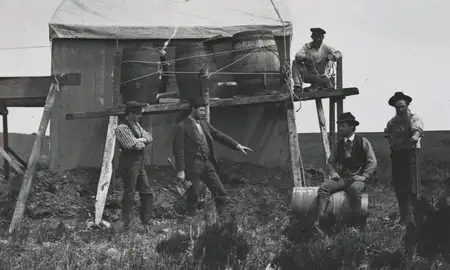
Disaster management leaders named as Distinguished Professors
Te Kunenga ki Pūrehuroa Massey University Vice-Chancellor Professor Jan Thomas has announced the appointment of Professors David Johnston and Christine Kenney as Distinguished Professors.
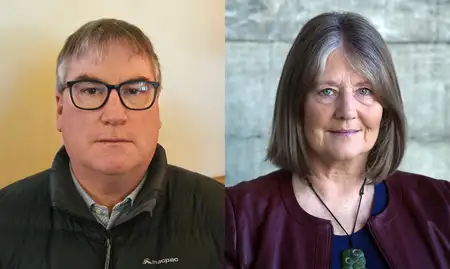
Involving citizens in the science of weather
Dr Marion Tan has been leading a working group of scientists to develop the High Impact Weather (HIWeather) Citizen Science Guidance Note for Weather, Climate, and Water Projects for the World Meteorological Organization.
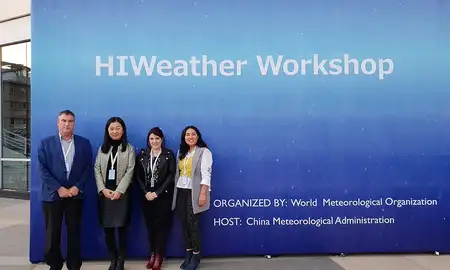
Massey researchers receive funding for COVID-19 wellbeing response
Massey researchers have received $126,000 from the Ministry of Business, Innovation and Employment COVID-19 Innovation Acceleration Fund for research on a psychosocial response and recovery framework for COVID-19.
